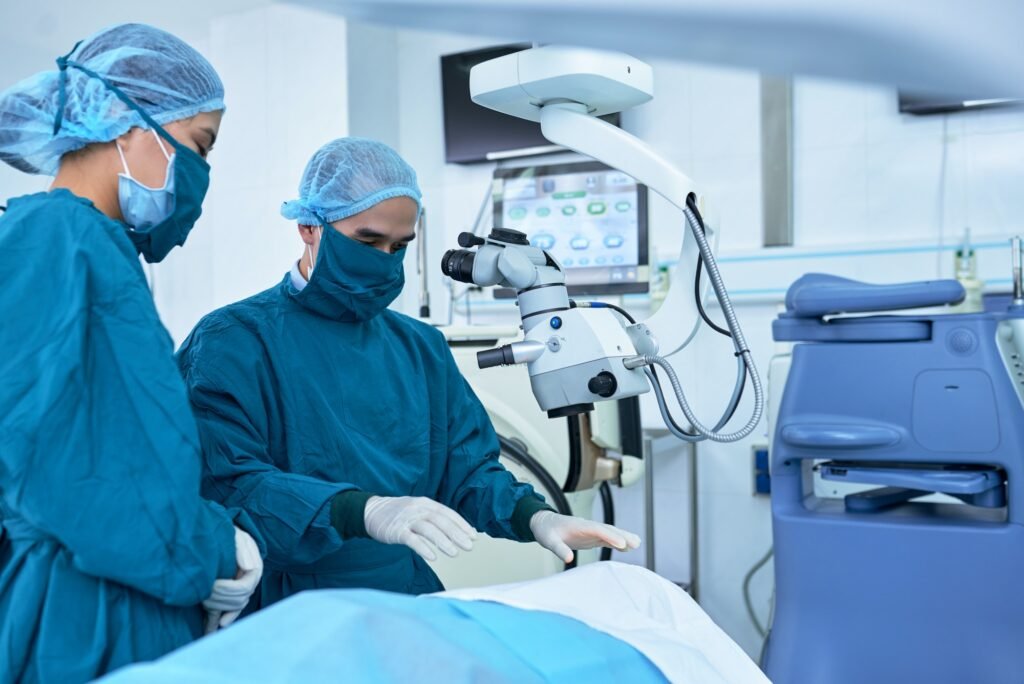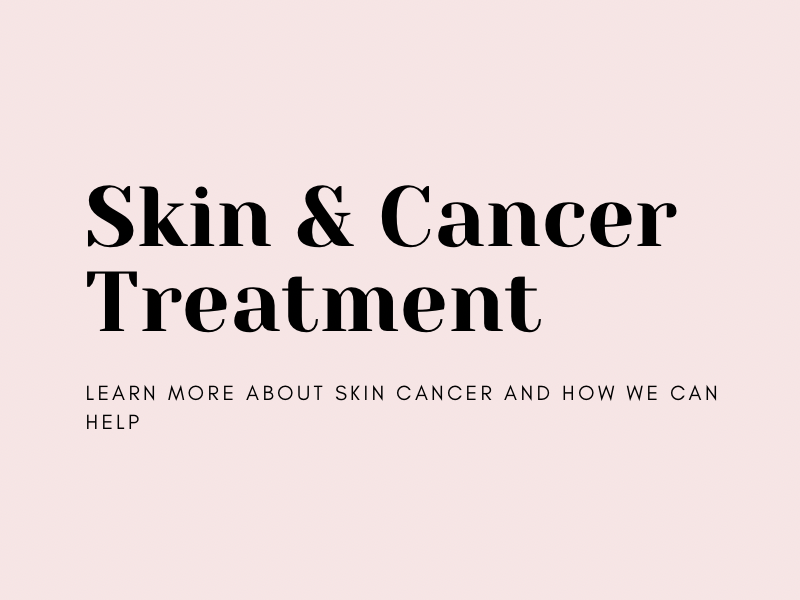SKIN CANCER & TREATMENT
Skin cancer is one of the most common types of cancer in the world and deserves serious treatment. The Dermatology Clinic in Nairobi, offers skin cancer surgery to help you treat your skin cancer. Our surgery services are available to help you reclaim your life and live free of cancer.
Prepare for Skin Cancer Surgery:
Skin Cancer surgery is a treatment for skin cancer. As you prepare for your Skin Cancer surgery appointment, be sure to follow all the guidelines from your physician. Take any medication that is required and prescribed to you as usual.
We recommend Tylenol if you need pain medication, because Tylenol does not thin your blood. Also, if you take prophylactic antibiotics before dental procedures, then discuss with us how to take them before your surgery. We’ll make sure you take the medication in the way appropriate to Skin Cancer surgery.
Our Skin Cancer surgery is a staged procedure, which means that the length varies depending on your tumor. Generally the surgery lasts between 2 and 5 hours, often beginning earlier in the morning.
We suggest that you avoid cosmetics and wear comfortable clothing – particularly clothing that can be easily removed if it’s near the cancer. Talk to our staff upon your arrival to ensure that everything is in order.
Our surgeons use local anesthetic during the Skin Cancer surgery, so bring reading materials or other quiet activities to keep yourself occupied during the procedure. You are also welcome to bring family and friends along with you.
Skin Cancer surgery removes the skin cancer in layers. We test each layer that is removed for cancer and continue to remove layers until the tests are clean.
Once the surgery is complete, our plastic surgeon is available to offer necessary reconstructive repairs. We consult with you to determine the best course of action for healing.
The Dermatology Clinic provides the Skin Cancer surgery in Nairobi that you need to be free from skin cancer. Call (+254) 711 712 512/ (+254) 778 250 689/ (+254) 722 712 512 to schedule your consultation today.
Preparing for Skin Cancer Surgery:
The Skin Cancer technique of skin cancer removal is a staged procedure. Therefore, we are unable to provide you with a specific length of time that you will be in the office. Please expect to be here between 2-5 hours.
Feel free to bring reading material or something to pass the time as well as water and/or snack.
You are welcome to bring family members or friends with you.
Take all the medications that were prescribed to you by a physician including Aspirin and other prescribed or recommended blood thinners as normal.
If you need to take a pain medication before or after the surgery, please take Tylenol, which does not thin the blood. Try to avoid Ibuprofen, Advil, Naproxen, Aleve, and Vitamin E if able as these can thin the blood.
If you require a prophylactic antibiotic before dental procedures, you will require a prophylactic antibiotic before your surgical procedure with us. We ask that you take the prophylactic antibiotic 1 hour prior to the surgical appointment and again 6 hours after the first dose.
Because Skin Cancer surgery utilizes local anesthesia instead of general anesthesia, you may eat normally before surgery.
Please shower before the surgery, and don’t apply any type of cosmetics including lotion, makeup, or perfume.
Dress comfortably, wearing a shirt that unbuttons or unzips.
Be sure to talk about any questions or concerns you have to the staff upon arrival at the office.
Smoking hinders wound healing and can be hazardous to your health. Please consider cutting back or quitting.

What to Expect the day of Surgery:
We are here to serve you and to partner in your care. Please ensure all your questions are answered before the procedure.
Skin Cancer surgery is an outpatient procedure done in our office. We have a surgical suite nearby and a laboratory for immediate preparation and microscopic examination of tissue. Typically, surgery appointments start early in the morning. Most patients spend at least two to four hours in the office but sometimes longer, depending on the extent of the tumor and the amount of reconstruction necessary.
Local anesthesia is administered around the area of the tumor. The use of local anesthesia in Skin Cancer surgery versus general anesthesia provides numerous benefits, including the prevention of lengthy recovery and possible side effects from general anesthesia. After the area has been numbed, then Dr. Saini removes the visible tumor along with a thin layer of surrounding tissue.
This tissue is prepared and put on slides by a technician and examined under a microscope by Dr. Saini or the pathologist. The lesion is marked in such a way Dr. Saini can see where the tumor is still present or if more needs to be taken when she reviews it under the microscope. If there is evidence of cancer, another layer of tissue is taken from the area where the cancer was detected. This ensures that only cancerous tissue is removed during the procedure, minimizing the loss of healthy tissue. These steps are repeated until all tissue is free of cancer. While there are always exceptions to the rule, most tumors require 1 to 3 stages for complete removal.
When the surgery is complete Dr. Saini will assess the wound and discuss options for reconstruction. The Dermatology Clinic has the benefit of a referral plastic surgeon that is available for all reconstructive repairs during your visit. This is a luxury that we have to offer and is ideal for skin cancers on the face or lesions large in size, however, it is still available for all site locations and sizes.
Your surgical wound will require care during the following weeks after surgery. Please plan to avoid strenuous physical activity for 48 hours and in some cases one to two weeks. You may experience a sensation of tightness across the area of your surgery site. Complete healing of the scar takes place over 3-12 months. During the first few months, the site may feel “thick”, swollen or lumpy and there may be some redness. Gentle massage of the area (starting about one month after your surgery and excluding grafts) will speed the healing process.
Skin Cancer Treatment & Screenings:
Skin cancer is one of the most common cancers in the world. The Dermatology Clinic provides the skin cancer screenings that you need to develop a skin cancer treatment plan. Come to our office in Doctors Park, Nairobi, to begin the process of identifying and treating your skin cancer.
Importance of Skin Cancer Screenings:
As skin cancer is so common, you should be checked regularly to ensure that you are free from it. The sooner that the cancer is identified, the sooner we can begin treatment. Skin cancer is generally treatable if caught early.
We understand the importance of identifying the location, extent, and type of skin cancer as early as possible. When you come in for your screening, we perform the visual evaluation and can provide insight for self-examination tips.
Perform regular self-examinations and come to our office if you notice any irregularities, and be sure to share what you have observed at your regular skin cancer screening. Self-examinations may be difficult to perform by yourself, but with a couple of mirrors you can visually evaluate your entire body
Screening and Treatment Options:
Our skin cancer screenings are generally full-body visual examinations that last 10 to 15 minutes. We take you to a private room and perform the non-invasive examination. A full-body scan helps ensure that your entire body is free of cancer.
We do provide screenings for only exposed areas of skin if that is your preferred method. However, remember that such a screening cannot confirm that you are completely free of skin cancer.
Be sure to receive a screening if you have previously had melanoma, have a history of multiple sunburns and excessive sun exposure, or have a family history of melanoma. These factors put you at increased risk of skin cancer.
The Dermatology Clinic at Doctors Park, Nairobi, is here for all your skin cancer treatment needs. Call (+254) 711 712512/ (+254) 778 250 689 / (+254) 722 712 512 to arrange for a screening or to talk about treatment options.
Sunscreen and skin exams? Why do we need them?
History of ONE blistering sunburn DOUBLES the risk of getting a melanoma skin cancer
Occasional tanning bed use TRIPLES your risk of a melanoma
Regular use of sunscreen decreases your chance of a non-melanoma skin (basal cell and squamous call carcinoma) cancer by 75% and a melanoma skin cancer by 50%.
Sunscreen benefit can be seen after a few years of regular use despite previous sun damage. It’s never too late to start!
Regular monthly home skin exams decreases the chance of death from a melanoma by 63% in people who have a previous melanoma
Regular sunscreen use also helps the skin look younger and healthier
Anywhere you have skin, you can get a skin cancer even without sun exposure
All types of skin cancer can be cured if detected early. Monthly self skin exams help us detect skin cancers early! Please call if you see anything new, changing, growing or not healing.
Who is at highest risk for skin cancers?
People with red hair are 3.6 times more likely than someone with dark hair to get a melanoma skin cancer and people with blonde hair are 2.0 times more likely
History of multiple sunburns and excessive sun exposure
History of indoor tanning use before age 30 makes you 6 times as likely to develop a melanoma
People with a numerous moles or people with multiple atypical moles
Personal history of melanoma skin cancer makes you 8.2-13.4 times as likely to develop another one
Family history of melanoma in a first degree relative increases your risk of melanoma by 1.7-3.0 times
The following are examples of skin cancer appearances. Skin cancer can also take other forms. The only way to definitively rule out skin cancer is to obtain a properly performed biopsy with your dermatologist. If you have a suspicious skin lesion, please call today for an evaluation.


